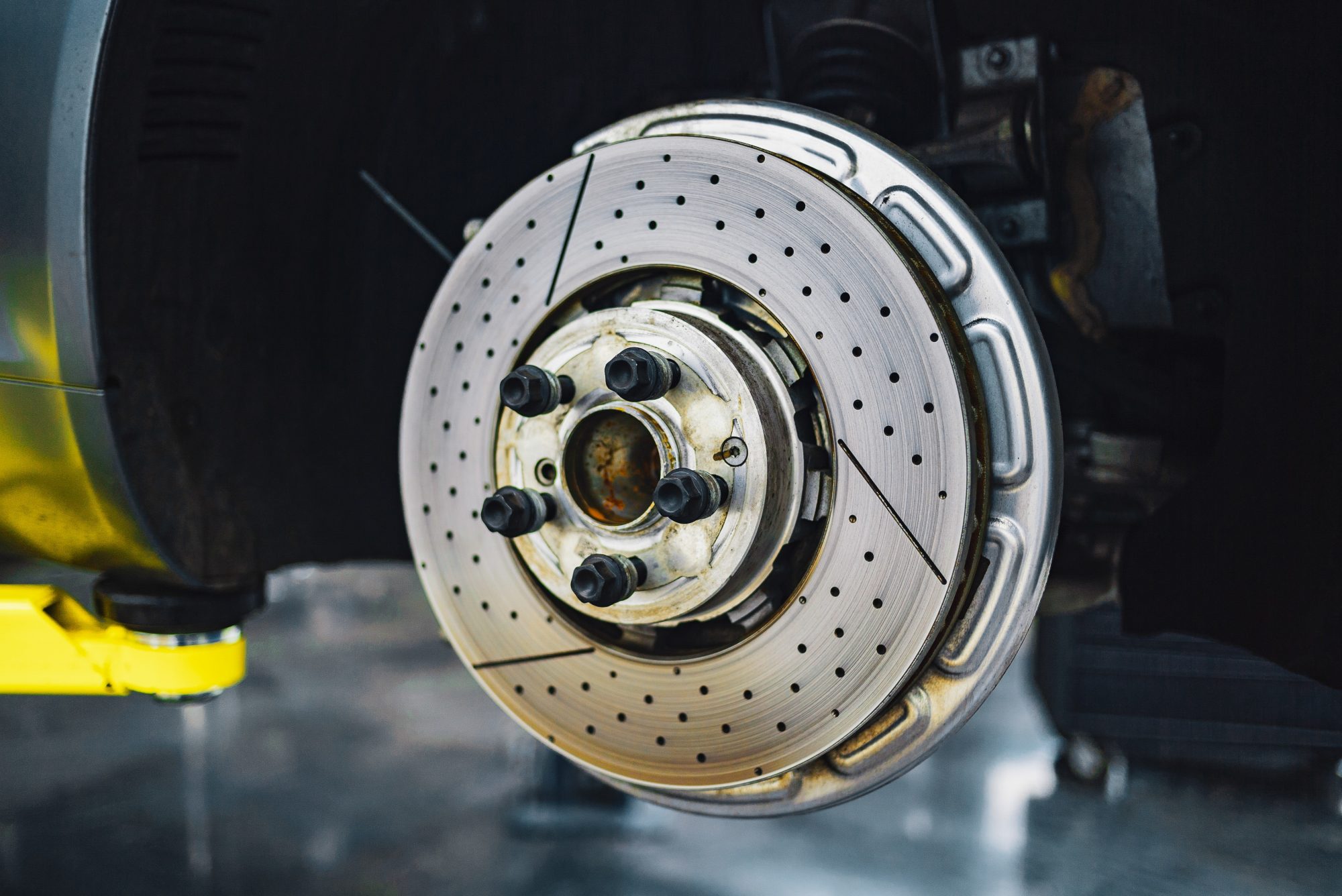Insights
Brake Disc Machining: Should You Have It Done?
August 4, 2022

The braking system is an integral factor in a vehicle's integrity and safety. Ensuring a complete stop at regulated speed is achieved by having consistent brake servicing to maintain the function of the brakes and suspension in your vehicle.
Whether you're looking to replace your brake disc rotors, undertake a disc rebalancing or deciding on machining your brakes, you should always consider brake disc resurfacing to ensure the safety of your car and passengers.
What Are Brake Discs?
A brake disc, sometimes referred to as brake rotors, are the circular metallic components that sit behind your wheels and are attached to the suspension of a car.
A brake disc functions to meet a friction material (usually a brake pad) to ensure that a vehicle comes to a slow, consistent stop. The way this works is that the brake disc rotates along with the wheel, brake fluid acts on the brake pads inside the calliper and the two are then clamped together. The pads are forced against the disc rotors which decelerates the disc rotation and slows the vehicle.
Of course, these pads and discs will wear down over time, this is when they either need to be replaced entirely or machined to produce new forms of friction.
Why Should You Get Your Brake Discs Machined?
Brake disc machining is becoming a popular method of brake system maintenance. If you are experiencing brake vibration (also known as brake shudder) or your car is favouring one side when braking, you should consider machining your discs or getting them replaced.
When machined successfully, a set of brakes becomes equipped with a new surface area of friction by cutting and removing the worn-in surfaces from the discs. The newly machined part are rougher resulting in greater friction and therefore smoother and more reliable braking efficiency.
Brake Disc Machining VS Brake Disc Replacement
When machining brake discs, the brake discs are removed from the vehicle and placed on a lathe with a special set of cutting instruments that are adjusted to remove a very small slice of the original, worn material from the face of the discs. The fresh surface of the brake discs will then continue to cause friction against the brake pads as good as new. Replacing the brake discs are as simple as removing the old and fitting the new rotors.
The major drawcard of getting your brake discs machined rather than opting for complete replacements is that it's much cheaper. Machining your brakes will usually cost half of what it would be to replace your rotors, however, it may take longer for your vehicle to be serviced as machining requires more labour to complete.
But, what is the best option for your vehicle, operating conditions and brake system in its entirety?
Brake Disc Thickness Variation
All car brakes are designed with a minimum thickness rating that indicates when a disc rotor can be machined or if it needs to be replaced.
The minimum thickness rating is assessed before a mechanic will undertake machining. If the disc has not yet reached the minimum rating and will not reach it within the replacement brake pads service life or during the machining process, the discs are safe to be machined. If a vehicle's brake disc measures beyond the minimum thickness rating it results in the vehicle being unroadworthy and usually means you will need new discs for replacement.
In some vehicles, typically European styles, brake pads are replaced at the same time as the brake discs as their design results in reaching their minimum thickness during the brake pads service life. In this circumstance, failing to replace the whole brake system will negatively affect braking performance and the braking system of the vehicle, rendering the vehicle unroadworthy.
Can I Machine My Brakes Myself?
Without the correct tools and experience it is not advisable to try and machine or even replace your own brakes. It's best to leave it to professional services as even one small mistake can cause critical damage to the brake system and overall safety and integrity of your vehicle.
When Are Brake Repairs Necessary?
If your vehicle experiences any of these signs, you should consider getting an inspection from one of your local mechanics to ensure the maintenance of your vehicle:
- Squealing noises or vibration when you put pressure on your brake pedal
- Clicking noises
- Difficulty stopping
- Steering wheel vibration
- Car pulls or favours one side when braking
It can be difficult to measure how long your brake pads or brake discs will last if they do not become faulty or have issues. Depending on the vehicle application, driving conditions and a driver's habits, brake pads and discs should last from 15,000 to 70,000 kilometres but always check with your vehicle manufacturer to double check.
How Much Is A Standard Brake Disc Machining?
In comparison to a brake rotor replacement, brake disc machining can be $50-$100 cheaper than a full replacement. A replacement can cost between $300-$800 depending on the parts required and the labour needed to replace them.
Often, the brake fluid and brake pads within a vehicle will also need a thorough inspection so ensure your mechanic gives your vehicle a complete routine inspection when considering your brakes. If you're looking for a mechanic to assist you, Enji has local mechanics that can help you in all of your brake system needs.
Easy Quoting
Enter you details once, select from a range of your local mechanics and receive quotes direct to your inbox.
Search Listings
Find local mechanics: